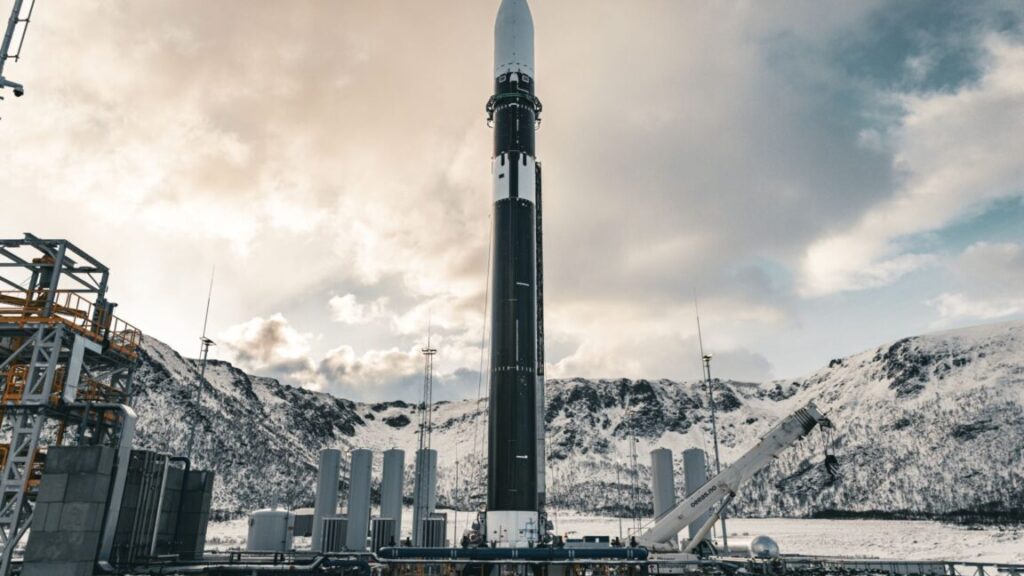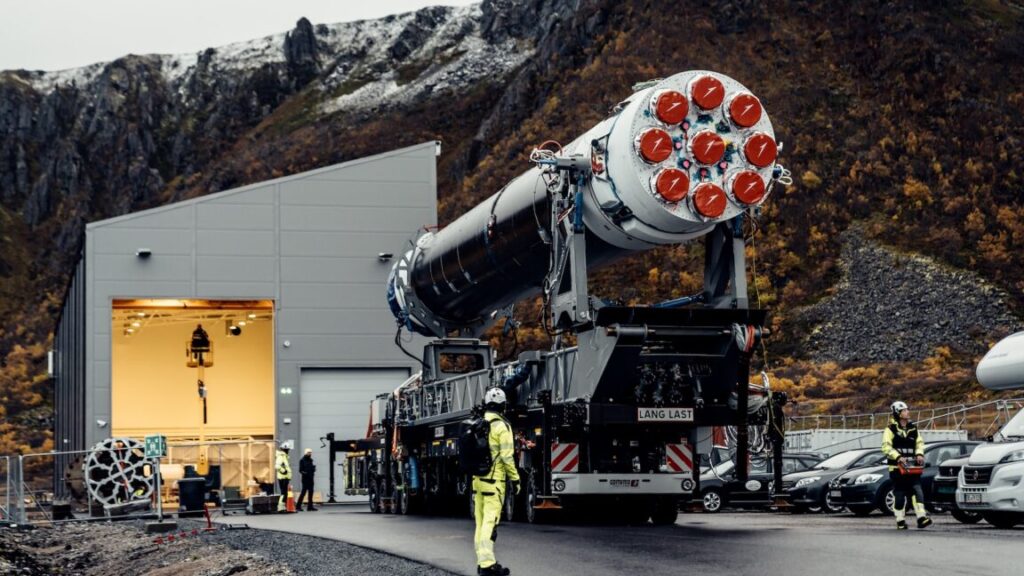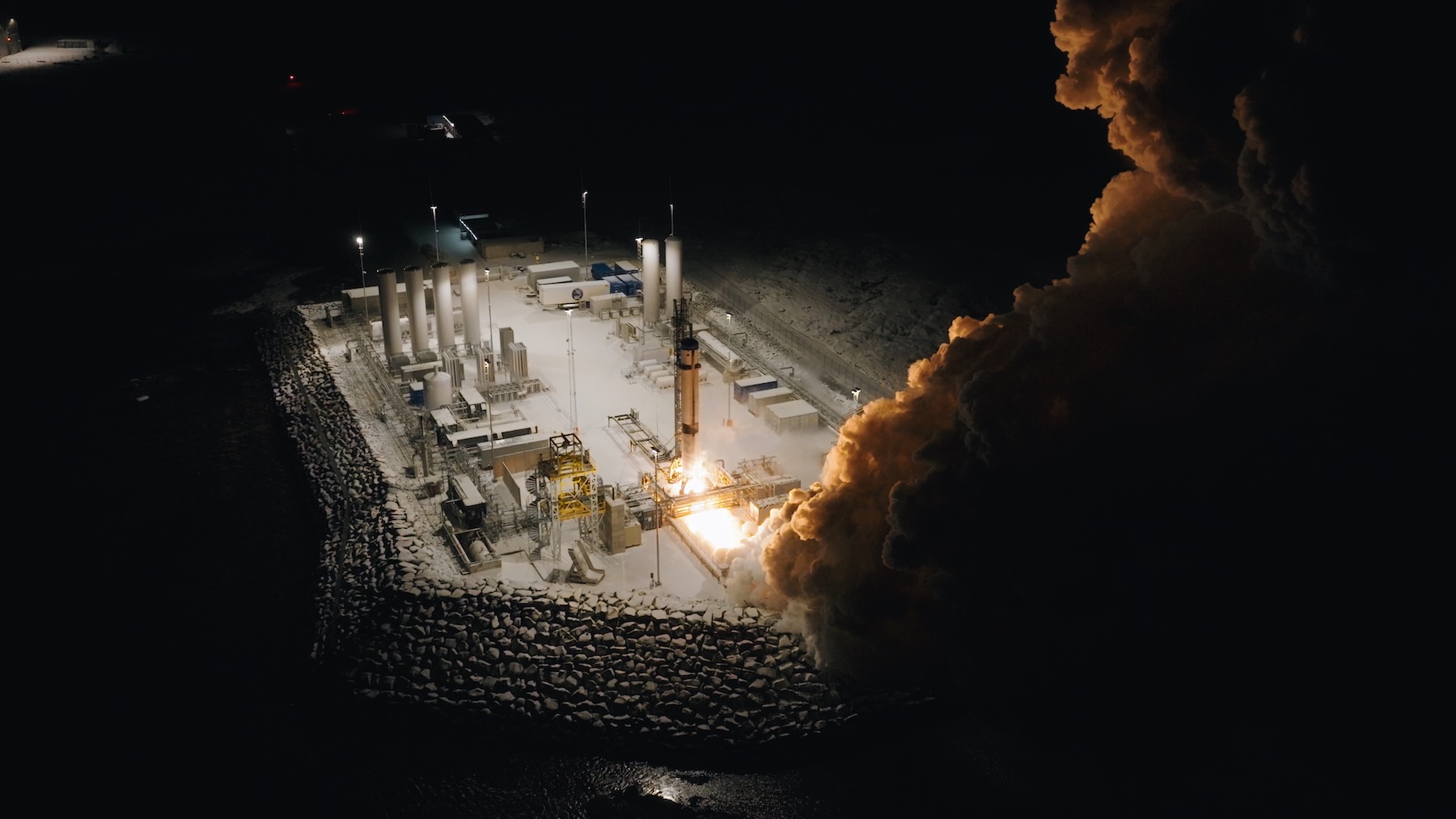This launcher is about to displace the V-2 as Germany’s largest rocket
Isar Aerospace’s first Spectrum rocket will launch from Andøya Spaceport in Norway.
Seven years ago, three classmates at the Technical University of Munich believed their student engineering project might hold some promise in the private sector.
At the time, Daniel Metzler led a team of 40 students working on rocket engines and launching sounding rockets. Josef Fleischmann was on the team that won the first SpaceX Hyperloop competition. Together with another classmate, Markus Brandl, they crafted rocket parts in a campus workshop before taking the leap and establishing Isar Aerospace, named for the river running through the Bavarian capital.
Now, Isar’s big moment has arrived. The company’s orbital-class first rocket, named Spectrum, is set to lift off from a shoreline launch pad in Norway as soon as Monday.
The three-hour launch window opens at 12: 30 pm local time in Norway, or 7: 30 am EDT in the United States. “The launch date remains subject to weather, safety and range infrastructure,” Isar said in a statement.
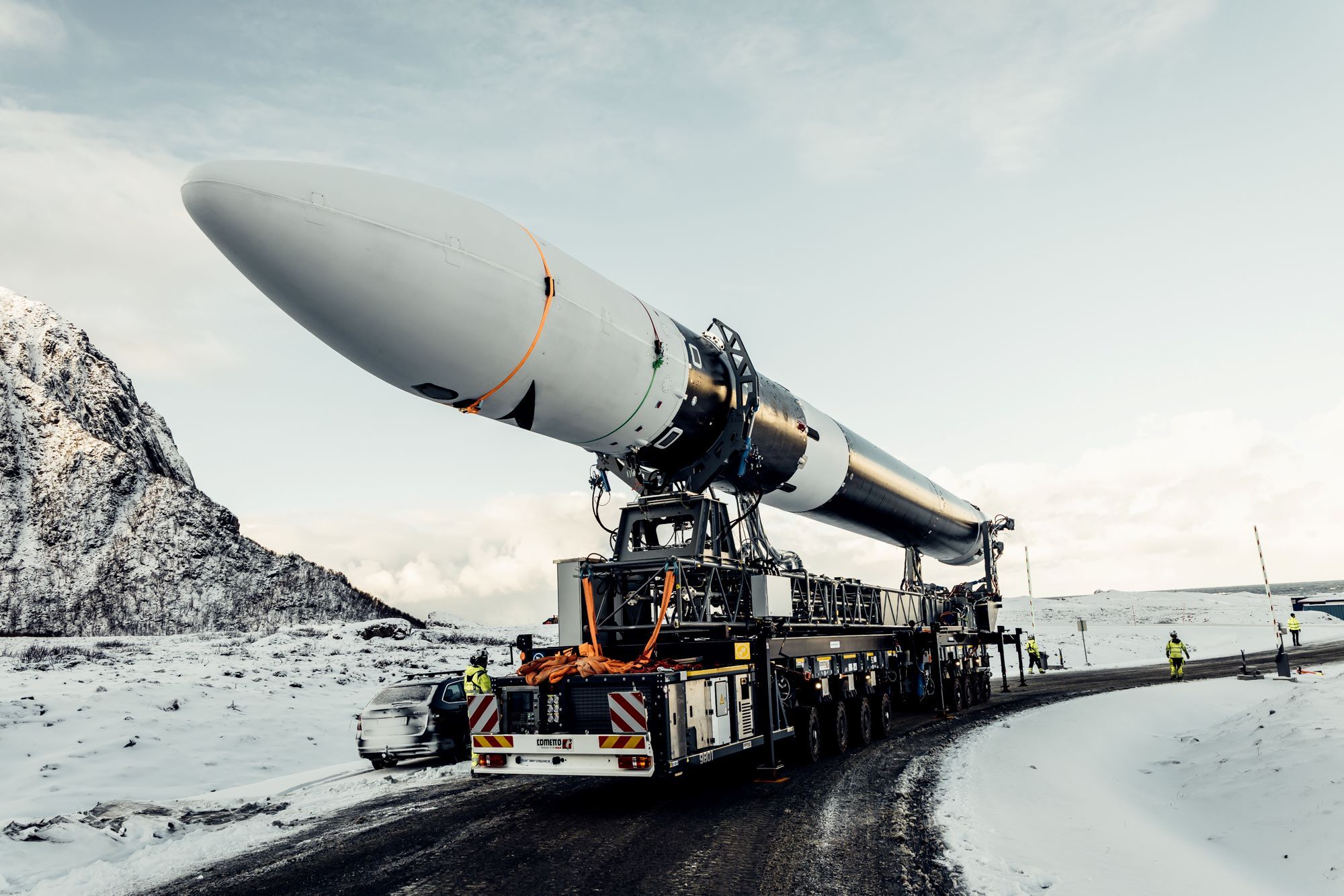
Isar’s Spectrum rocket rolls out to its launch pad in Norway. Credit: Isar Aerospace
Isar said it received a launch license from the Norwegian Civil Aviation Authority on March 14, following the final qualification test on the Spectrum rocket in February to validate its readiness for flight.
Notably, this will be the first orbital launch attempt from a launch pad in Western Europe. The French-run Guiana Space Center in South America is the primary spaceport for European rockets. Virgin Orbit staged an airborne launch attempt from an airport in the United Kingdom in 2023, and the Plesetsk Cosmodrome is located in European Russia.
No guarantees
Success is never assured on the inaugural launch of a new rocket. Isar is the first in a wave of European launch startups to arrive at this point. The company developed the Spectrum rocket with mostly private funding, although Isar received multimillion-euro investments from the European Space Agency, the German government, and the NATO Innovation Fund.
All told, Isar says it has raised more than 400 million euros, or $435 million at today’s currency exchange rate, more than any other European launch startup.
“We are approaching the most important moment of our journey so far, and I would like to thank all our team, partners, customers and investors who have been accompanying and trusting us,” said Daniel Metzler, Isar’s co-founder and CEO, in a statement.
Most privately developed rockets have failed to reach orbit on the first try. Several US launch companies that evolved in a similar mold as Isar—such as Rocket Lab, Firefly Aerospace, and Astra—faltered on the way to orbit on their rockets’ first flights.
“With this mission, Isar Aerospace aims to collect as much data and experience as possible on its in-house-developed launch vehicle. It is the first integrated test of all systems,” said Alexandre Dalloneau, Isar’s vice president of mission and launch operations.
“The test results will feed into the iterations and development of future Spectrum vehicles, which are being built and tested in parallel,” Isar said in a statement.
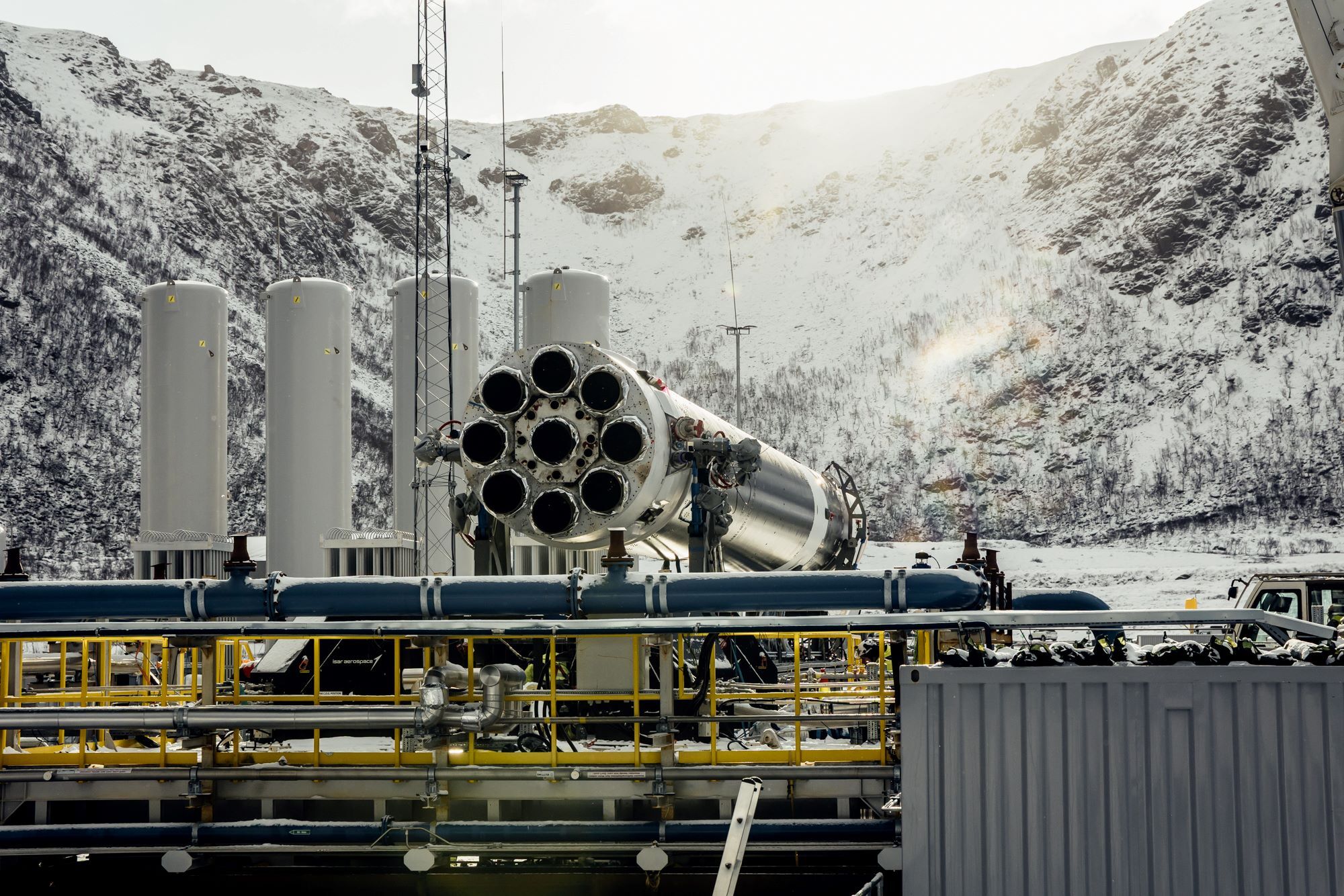
Look familiar? Isar Aerospace’s Spectrum rocket is powered by nine first-stage engines arranged in an “octaweb” configuration patterned on SpaceX’s Falcon 9 rocket. Credit: Isar Aerospace/Wingmen Media
Europe has struggled to regain its footing after SpaceX took over the dominant position in the global commercial launch market, a segment led for three decades by Europe’s Ariane rocket family before SpaceX proved the reliability of the lower-cost, partially reusable Falcon 9 launcher. The continent’s new Ariane 6 rocket, funded by ESA and built by a consortium owned by multinational firms Airbus and Safran, is more expensive than the Falcon 9 and years behind schedule. It finally debuted last year.
One ton to LEO
Isar’s Spectrum rocket is not as powerful as SpaceX’s Falcon 9 or Arianespace’s Ariane 6. But even SpaceX had to start somewhere. Its small Falcon 1 rocket failed three times before tasting success. Spectrum is somewhat larger and more capable than Falcon 1, with performance in line with Firefly’s Alpha rocket.
The fully assembled Spectrum rocket stands about 92 feet (28 meters) tall and measures more than 6 feet (2 meters) in diameter. The expendable launcher is designed to haul payloads up to 1 metric ton (2,200 pounds) into low-Earth orbit. Spectrum is powered by nine Aquila engines on its first stage, and one engine on the second stage, burning a mixture of propane and liquid oxygen propellants.
There are no customer satellites aboard the first Spectrum test flight. The rocket will climb into a polar orbit from Andøya Spaceport in northern Norway, but Isar hasn’t published a launch timeline or the exact parameters of the target orbit.
While modest in size next to Europe’s Ariane launcher family, Isar’s Spectrum is the largest German rocket since the V-2, the World War II weapon of terror launched by Nazi Germany against targets in Great Britain, Belgium, and other places. In the 80 years since the war, German industry developed a handful of small sounding rockets and manufactured upper stages for Ariane rockets.
But German governments have long shunned spending on launchers at levels commensurate with the nation’s place as a top contributor to ESA. France took the lead in the continent’s postwar rocket industry, providing the lion’s share of funding for Ariane and taking responsibility for building engines and booster stages.
Now, 80 years to the week since the last V-2 launch of World War II, Germany again has a homegrown liquid-fueled rocket on the launch pad. This time, it’s for a much different purpose.
As a first step, Isar and other companies in Europe are vying to inject competition with Arianespace into the European launch market. This will begin with small government-funded satellites that otherwise would have likely launched on rideshare flights by SpaceX or Arianespace.
In 2022, the German space agency (known as DLR) announced the selection of research and demo payloads slated to fly on Spectrum’s second launch. The Norwegian Space Agency revealed a contract earlier this month for Isar to launch a pair of satellites for the country’s Arctic Ocean Surveillance program.
Within the next few days, ESA is expected to release an “invitation to tender” for European industry to submit proposals for the European Launcher Challenge. This summer, ESA will select winners from Europe’s crop of launch startups to demonstrate that their rockets can deliver the agency’s scientific satellites to orbit. This is the first time ESA has experimented with a fully commercial business model, with launch service contracts to private companies. Isar is a leading contender to win the launcher challenge, alongside other European companies like Rocket Factory Augsburg, HyImpulse, MaiaSpace, and others.
Previously, ESA has provided billions of euros to Europe’s big incumbent rocket companies for development of new generations of Ariane rockets. Now, ESA wants to follow the path of NASA, which has used fixed-price service contracts to foster commercial cargo and crew transportation to the International Space Station, and most recently, privately owned landers on the Moon.
“Whatever the outcome, Isar Aerospace’s upcoming Spectrum launch will be historic: the first commercial orbital launch from mainland Europe,” Josef Aschbacher, ESA’s director general, posted on X. “The support and co-funding the European Space Agency has given Isar Aerospace and other launch service provider startups is paying off for increased autonomy in Europe. Wishing Isar Aerospace a great launch day with fair weather and most importantly, that the data they receive from the liftoff will speed next iterations of their rockets.”
Toni Tolker-Nielsen, ESA’s acting director of space transportation, called this moment a “paradigm shift” for Europe’s launcher strategy.
“In the last 40 years, we have had these ESA-developed launchers that we have been relying on,” Tolker-Nielsen told Ars in an interview. “So we started with Ariane 1 up to Ariane 6. Vega C came onboard. And it’s been working like that for the last 40 years. Now, we are moving into in the ’30s, and the next decades, to have privately developed launchers.”
Isar Aerospace’s first Spectrum rocket will lift off from the remote Andøya Spaceport in Norway, a gorgeous location that might be the world’s most picturesque launch site. Nestled on the western coast of an island inside the Arctic Circle, Andøya offers an open path over the Norwegian Sea for rockets to fly north, where they can place satellites into polar orbit.
The spaceport is operated by Andøya Space, a company 90 percent owned by the Norwegian government through the Ministry for Trade, Industry, and Fisheries. Until now, Andøya Spaceport has been used for launches of suborbital sounding rockets.

The geography of Norway permits northerly launches from Andøya Spaceport. Credit: Andøya Space
No better time than now
Isar’s first launch comes amid an abrupt turn in European strategic policy as the continent’s leaders struggle with how to respond to moves by President Donald Trump in his first two months in office. In recent weeks, the Trump administration put European leaders on their heels with sudden policy reversals and unpredictable statements on Ukraine, NATO, and the US government’s long-term backstopping of European security.
Friedrich Merz, set to become Germany’s next chancellor, said last month that Europe should strive to “achieve independence” from the United States. “It is clear that the Americans, at least this part of the Americans, this administration, are largely indifferent to the fate of Europe.”
Last week, Merz shepherded a bill through German parliament to amend the country’s constitution, allowing for a significant increase in German defense spending. The incoming chancellor said the change is “nothing less than the first major step towards a new European defense community.”
The erosion of Europe’s trust in the Trump administration prompted rumors that the US government could trigger a “kill switch” to turn off combat capabilities of F-35 fighter jets sold to US allies. This would have previously seemed like a far-fetched conspiracy theory, but some European officials felt compelled to make statements denying the kill switch reports. Still, the recent turbulence in trans-Atlantic relations has some US allies rethinking their plans to buy more US-made fighter jets and weapons systems.
“Reliable and predictable orders should go to European manufacturers whenever possible,” Merz said.
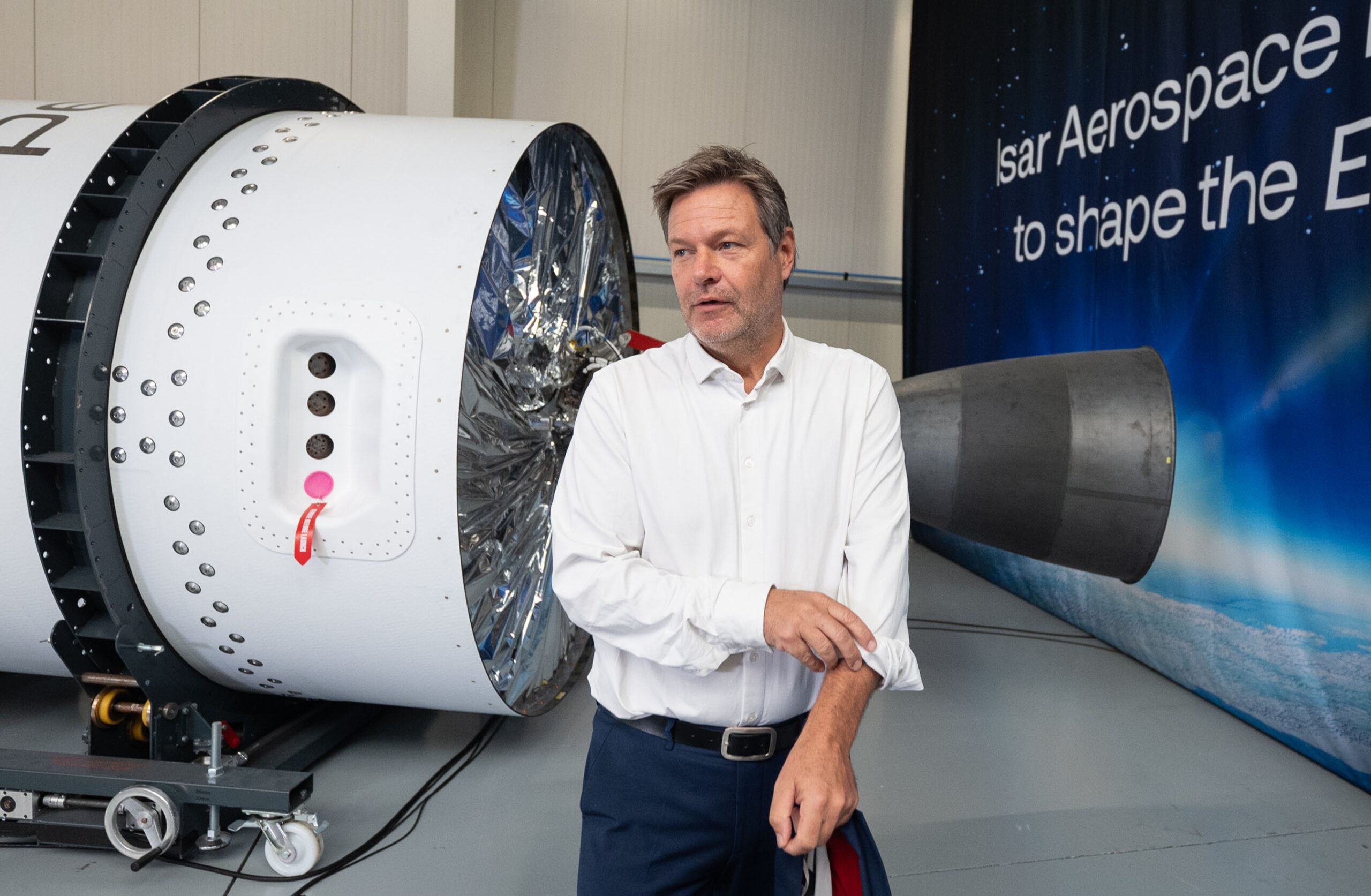
Robert Habeck, Germany’s vice chancellor and economics minister, tours Isar Aerospace in Ottobrunn, Germany, in 2023. Credit: Marijan Murat/picture alliance via Getty Images
This uncertainty extends to space, where it is most apparent in the launch industry. SpaceX, founded and led by Trump ally Elon Musk, dominates the global commercial launch business. European governments have repeatedly turned to SpaceX to launch multiple defense and scientific satellites over the last several years, while Europe encountered delays with its homegrown Ariane 6 and Vega rockets.
Until 2022, Europe and Russia jointly operated Soyuz rockets from the Guiana Space Center in South America to deploy government and commercial payloads to orbit. The partnership ended with Russia’s invasion of Ukraine.
Europe’s flagship Ariane 5 rocket retired in 2023, a year before its replacement—the Ariane 6—debuted on its first test flight from the Guiana Space Center. The first operational flight of the Ariane 6 delivered a French military spy satellite to orbit March 6. The smaller Vega C rocket successfully launched in December, two years after officials grounded the vehicle due to an in-flight failure.
ESA funded development of the Ariane 6 and Vega C in partnership with ArianeGroup, a joint venture between Airbus and Safran, and the Italian defense contractor Avio.
For the moment, Europe’s launcher program is back on track to provide autonomous access to space, a capability European officials consider a strategic imperative. Philippe Baptiste, France’s minister for research and higher education, said after the Ariane 6 flight earlier this month that the launch was “proof” of European space sovereignty.
“The return of Donald Trump to the White House, with Elon Musk at his side, already has significant consequences on our research partnerships, on our commercial partnerships,” Baptiste said in his remarkably pointed prepared remarks. “If we want to maintain our independence, ensure our security, and preserve our sovereignty, we must equip ourselves with the means for strategic autonomy, and space is an essential part of this.”
The problem? Ariane 6 and Vega C are costly, lack a path to reusability, and aren’t geared to match SpaceX’s blistering launch cadence. If Europe wants autonomous access to space, European taxpayers will have to pay a premium. Isar’s Spectrum also isn’t reusable, but European officials hope competition from new startups will produce fresh launch options, and perhaps stimulate an inspired response from Europe’s entrenched launch companies.
“In today’s geopolitical climate, our first test flight is about much more than a rocket launch: Space is one of the most critical platforms for our security, resilience, and technological advancement,” Metzler said. “In the next days, Isar Aerospace will lay the foundations to regain much needed independent and competitive access to space from Europe.”
Tolker-Nielsen, in charge of ESA’s space transportation division, said this is the first of many steps for Europe to develop a thriving commercial launch sector.
“This launch is a milestone, which is very important,” he said. “It’s the first conclusion of all this work, so I will be looking carefully on that. I cross my fingers that it goes well.”
This launcher is about to displace the V-2 as Germany’s largest rocket Read More »
